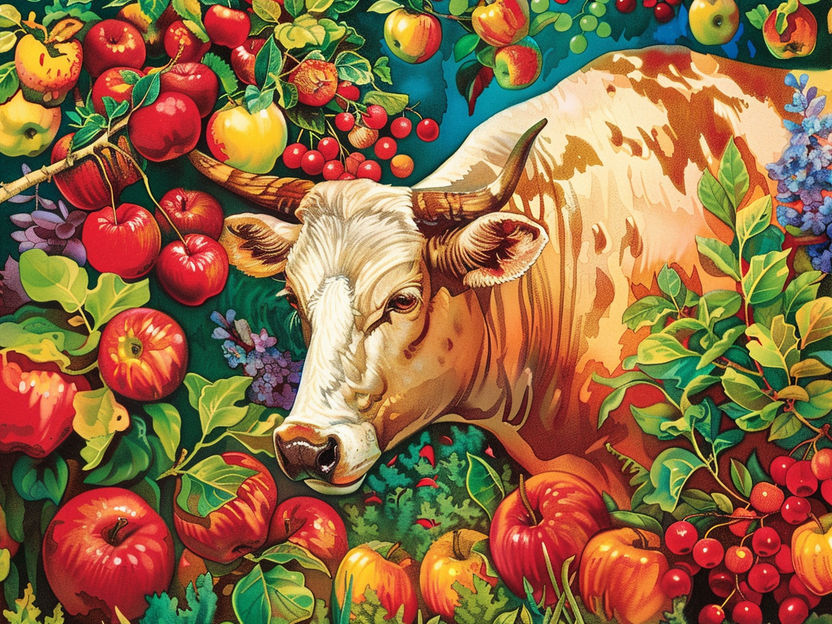Trade with China: Paving the way for beef and apples from Germany
Federal Minister Özdemir signs two bilateral agreements for further steps towards market opening for German agricultural exports
Advertisement
During his trip to the People's Republic of China, the Federal Minister of Food and Agriculture, Cem Özdemir, made substantial progress in opening up the Chinese market for German agricultural products: Federal Minister Özdemir and Minister Yu Jianhua from the Main Customs Administration of the People's Republic of China signed two joint declarations on the lifting of trade restrictions due to Bovine Spongiform Encephalopathy (BSE) and on the export of apples from Germany. Talks are also to continue on the export of German pork from areas not affected by African swine fever (ASF).

Symbol image
computer generated picture
Federal Minister Cem Özdemir commented: "China is also an important trading partner in the agricultural sector. The way has now been paved for beef and apples from Germany. It is a great success that we have finally been able to remove the BSE trade restrictions after more than 20 years. We are also making a quantum leap in the export of German apples to China - for the first time there are common rules for exports. We will continue talks on the export of pork. In our view, regionalization offers a good and secure basis for rule-based trade that respects international standards."
Specifically, after many years of negotiations, a joint declaration on the lifting of the bovine spongiform encephalopathy (BSE) ban was concluded for the export of German beef. Germany has taken comprehensive measures against BSE and has been free of BSE for years. Since the BSE crisis of the early 2000s, it has not been possible to export beef to China. With the signing of the declaration, this trade restriction has been lifted. On this basis, further steps can be taken to open up the market and an agreement on phytosanitary requirements - i.e. requirements relating to the health of plants and plant products - for the export of fresh apples from Germany to China has been concluded. Until now, there have been no such regulations, which is why it is not possible to export German apples to China. The agreement is the first step towards opening up the market for apples from Germany. The conditions set out in the agreement form the basic prerequisites for trust-based trade and the minimization of phytosanitary risks. This ensures protection against the import and spread of quarantine pests with apples to China. Germany has been in contact with China about market access for German apples since 2016. Following a technical visit by Chinese experts to German apple-growing regions this year, German producers will be able to plan their first apple exports to China.
Federal Minister Özdemir also campaigned in China for the opening of the market for German pork, which can no longer be exported to China since the outbreak of African swine fever (ASF) in Germany in 2020. In 2020, Germany still exported 319,448 tons of fresh, chilled or frozen pork to China (plus offal, pork fat and bacon). In 2023 it was only 739 tons. Germany has taken comprehensive measures to combat ASF. There are currently no cases of ASF in domestic pigs. The ASF incidence in the wild boar population has also been limited to a small area thanks to stringent control and prevention measures. Germany can therefore continue to guarantee the trade of safe and high-quality pork. Talks on the export of German pork are now to be continued with the Chinese side.
Federal Minister Özdemir also met his Chinese counterpart Tang Renjian, Minister of Agriculture and Rural Affairs, for the first time in person. Federal Minister Özdemir spoke out in favor of focusing cooperation with China on the transformation of food systems and the promotion of sustainability aspects in order to protect global goods. In future, German-Chinese project cooperation should focus on how food security can be reconciled with the protection of global biodiversity, the climate and animal health.
Note: This article has been translated using a computer system without human intervention. LUMITOS offers these automatic translations to present a wider range of current news. Since this article has been translated with automatic translation, it is possible that it contains errors in vocabulary, syntax or grammar. The original article in German can be found here.



























































